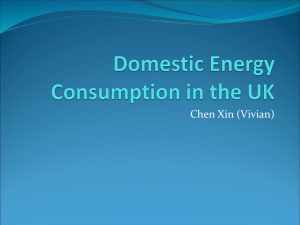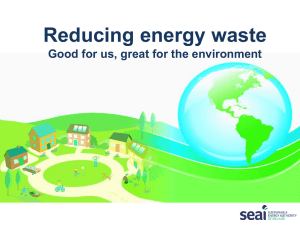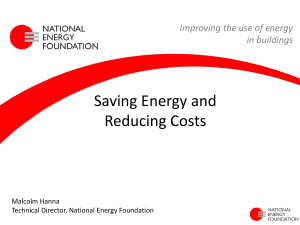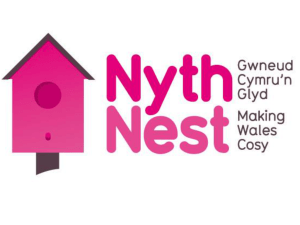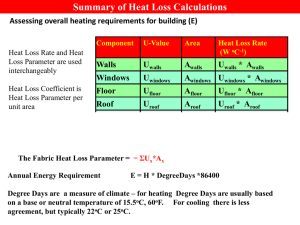Key facts and statistics
advertisement
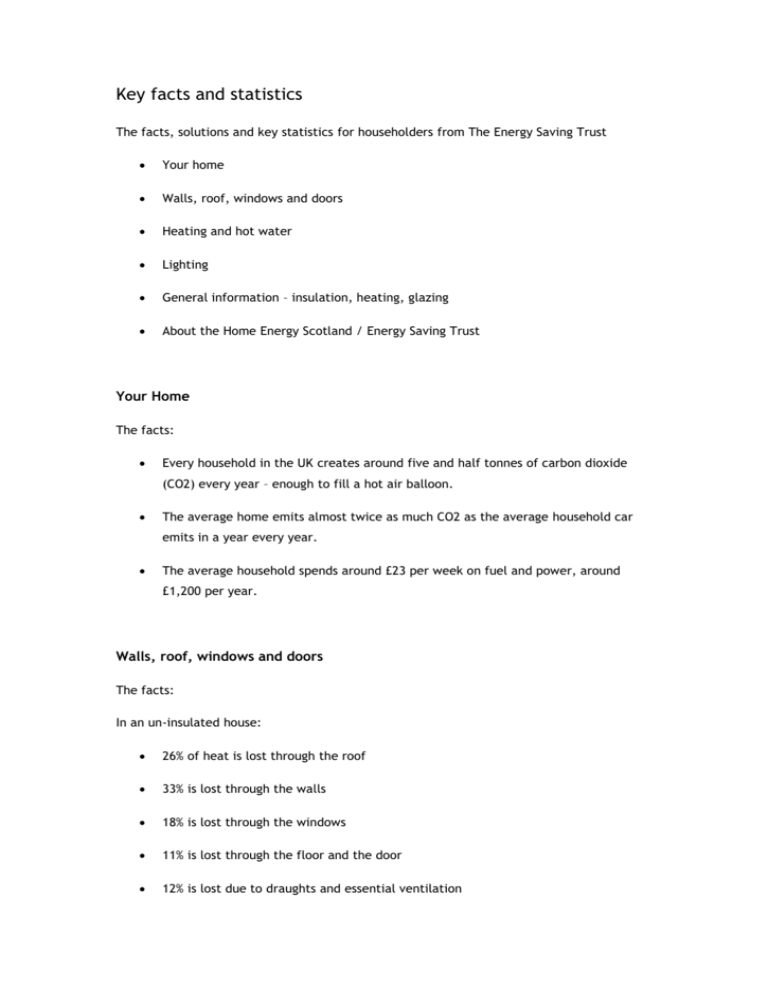
Key facts and statistics The facts, solutions and key statistics for householders from The Energy Saving Trust Your home Walls, roof, windows and doors Heating and hot water Lighting General information – insulation, heating, glazing About the Home Energy Scotland / Energy Saving Trust Your Home The facts: Every household in the UK creates around five and half tonnes of carbon dioxide (CO2) every year – enough to fill a hot air balloon. The average home emits almost twice as much CO2 as the average household car emits in a year every year. The average household spends around £23 per week on fuel and power, around £1,200 per year. Walls, roof, windows and doors The facts: In an un-insulated house: 26% of heat is lost through the roof 33% is lost through the walls 18% is lost through the windows 11% is lost through the floor and the door 12% is lost due to draughts and essential ventilation The solutions: Cavity wall insulation is one of the most cost-effective energy efficiency measures you can take in the home. It can save you around £110 each year on your heating bill. Invest in draught excluders for doors, windows and letterboxes opening onto the outside to reduce the amount of warm air escaping. Gaps between skirting boards and floorboards are also worth tackling. Double-glazing cuts heat loss and also reduces noise and condensation problems. Savings of around £130 on bills can be expected annually if whole-house single glazing is replaced with Energy Saving Recommended double glazing. Close your curtains at dusk to stop heat escaping. Heating and hot water The facts: The older your boiler is, the more inefficient it is likely to be. If it is 15 years or older, you should definitely think about changing it. On average, heating and hot water account for around 60% of the average fuel bill and, unless you have a new boiler, your heating system is unlikely to be running as efficiently as it could. The solutions: You can reduce your heating bills by up to a quarter by replacing an old G-rated boiler with an A-rated condensing boiler and a full set of heating controls. Replace an old G-rated boiler with a new A-rated condensing one and upgrade your heating controls at the same time, and you can save up to £225 a year. Hot water will stay hot longer, and you will waste less energy heating it, if you insulate your hot water cylinder. Fitting a jacket to your hot water tank can cut wastage, saving you around £35 a year. Hot water pipes lose heat between the boiler and hot water tank, so insulate them wherever you can see them. Insulating your visible hot water pipes can save around £10 a year on your fuel bills. Reducing your heating thermostat by 1°C when you are too warm can cut up to 10% off your heating costs. For a gas-heated, three-bed semi-detached property, this could work out at a saving of around £50 a year. The thermostat on your hot water tank should be set to 60° C or 140° F - it is not necessary to set it higher than this. Lighting The facts: In most homes, lighting accounts for around 20% of the electricity bill. UK households spend around £1.8bn every year on electricity to power their lighting. The solutions: Energy saving bulbs use up to 80% less electricity than standard bulbs and last around 10 times as long. Depending on how long your lights are in use every day, an energy saving light bulb can save you around £2.50 per year on average or around £7 for brighter bulbs or those used for more than a few hours a day. By replacing all the remaining traditional bulbs in your home with energy saving light bulbs you could save around £25 a year from your energy bill and 100kg of CO2. Over the lifetime of all the bulbs this could add up to £390 saved on energy bills and in bulb costs and 2.2 tonnes of CO2. The facts: If every UK household installed just one extra energy saving light bulb (or ‘Compact Fluorescent Light bulb’) in their house, the CO2 saved would be equivalent to taking 100,000 cars off the roads. If everyone in the UK switched all their remaining traditional inefficient light bulbs to energy saving light bulbs, the electricity saved in just one year would run the UK’s street lighting for two and a half years, or provide electricity for around half the houses in Scotland for a year. General information Insulation: Did you know that in an un-insulated house more than half of the heat is lost through the walls and roof. As well as reducing fuel bills, insulation can also help prevent condensation on walls and ceilings, and give your home a more even temperature, all year round. If you do not currently have any installing loft insulation in your loft, by installing it to a depth of at least 270mm (10"), you could save around £145 a year (for a gas heated, three-bed semi-detached house). Loft insulation is effective for at least 40 years. If your home is un-insulated, a third of the heat your central heating system generates will be lost through the walls. Cavity walls are most likely to be found in homes built from the 1920’s onwards where the external walls are made of two layers with a small gap or ‘cavity’ between them. Cavity wall insulation fills this gap. Homes built in the last 10 years are likely to already have cavity wall insulation. Cavity wall insulation can also help to reduce condensation inside a property if it is a problem on external walls. Insulating your cavity walls can save you around £110 a year off your heating bills. Heating: The average household in Scotland spends £660 on heating their home and hot water each year – spending the most in winter. Save up to £225 a year on your heating bills by replacing an old G-rated boiler with an A-rated condensing boiler with a full set of heating controls (based on a gas heated 3 bed semi-detached house). Fitting a room thermostat (if your central heating system does not have one currently) can save you around £55 a year off your heating bills (based on a gas heated 3 bed semi-detached house). Turning your thermostat down by 1 degree can save you around £50 per year. The recommended temperature for the average home is 18 to 21 degrees C, or higher if the occupants are elderly, ill or very young. For babies the recommended temperature is around 18 degrees C. Glazing: In an un-insulated house, 18% of the heat is lost through the windows. Replacing the single glazing in a gas heated, 3 bed semi-detached house with Energy Saving Recommended double-glazing (with an energy rating of B) can save you around £135 per year. About the Energy Saving Trust The Energy Saving Trust is one of Scotland and the UK's leading impartial organisations helping people save energy and reduce carbon emissions. We provide expert insight, knowledge and advice about energy saving, support people to take action and help local authorities and communities to save energy. The Energy Saving Trust's work in Scotland is funded by the Scottish Government. We manage a network of advice centres in Scotland specifically designed to help consumers take action to save energy. This Energy Saving Scotland advice network aims to reach 250,000 people every year. Call the Scottish Government’s Home Energy Hotline 0800 512 012 or visit www.homeenergyscotland.org.uk Find out about the Energy Saving Trust and its key achievements: www.energysavingtrust.org.uk/corporate
